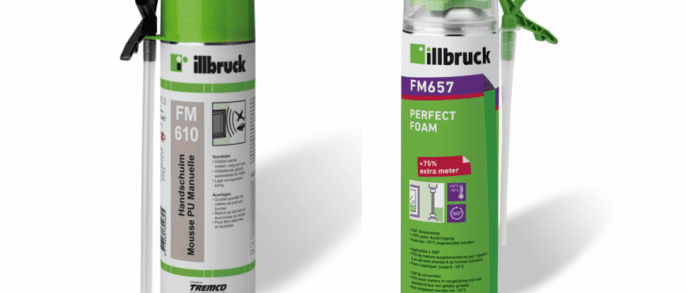Builder's merchants and DIY shops
Builders’ merchants and DIY shops have a long history of sustainable development and have made numerous efforts to make their packaging and packaging materials more sustainable. In the past, these retailers mainly sold raw building supplies, but they have since started selling many non-industry products, such as camping supplies, bicycle and car parts, and electronics. The most commonly used types of packaging in DIY shops are plastic buckets, containers, and bottles, caulk cartridges and tubes, paint cans, and so-called hang-tab packaging (blister packs, cartridges, cards, and bags).
Trends and challenges
The most important developments affecting packaging for builders’ merchants and DIY shops are:
- Ambitions of governments and companies to introduce reusable and recyclable packaging. Packaging must comply with laws and regulations. In recent years, the European Commission and the Dutch government have introduced and adopted new proposals and are implementing programmes to increase the recyclability and reuse of pacakging and to reduce the amount of waste. Keep informed of these developments so that you can respond to future legislation in a timely manner and so that your company can distinguish itself from other companies as a frontrunner in the field of sustainability. KIDV keeps an overview of the changes in legislation and regulations, such as the new recycling targets, changes to the essential requirements for packaging and the approach to single-use plastics. You can find the overview here (available in Dutch).
- Using recycled materials in plastic packaging. The use of recyclate in packaging reduces the need for virgin material. In this sector, there are many opportunities for the application of plastic recyclate, because this packaging does not have to meet the requirements for food packaging. In the market for building and infrastructure, there are still many opportunities for the application of recyclate, not only in existing applications of PE and PP, but also in the replacement of other materials, such as wood and concrete. Various companies in the construction sector indicate that there are many possibilities for the application of recyclate. Possible applications include: paint buckets, drainage tiles, car-bin hooks, ventilation ducts, lampposts, street furniture, planters, worm bait, manhole covers, gullies, insulation material, building blocks, roof tiles, etc. More information about the application of plastic recyclate can be found at kunststofhergebruiken.nl(only available in Dutch).
- A shift from metal paint packagingto plastic packaging
Paint buckets are types of packaging that lend themselves well to the use of recycled plastic. Collected plastic packaging waste is currently sorted into streams of PET, PP, PE, foils and a mixed stream. Most plastic packaging waste is not (yet) colour-sorted, with the result that different colours remain mixed. As a result, recyclate often has a dark grey colour. This dark colour makes the production of brightly coloured products from 100% recycled plastic challenging. As paint buckets are also produced in dark colours, the recyclate can be used well in these.
- Growing online sales.More and more products are sold online. As a result, more and more secondary packaging (boxes, pallet wraps) is ending up in households. Communicate on the packaging in which waste stream it should be disposed of, for example with the help of the Disposal Guide. Make sure that the shipping packaging is also sustainable. Click here for more information on the sustainability of e-commerce packaging.
Getting started with sustainable packaging
Anyone who starts working with sustainable packaging will often quickly discover that there is more to it than just using less or different material. To develop successful sustainable packaging, you have to look at the packaging process and logistics, at customers’ purchasing and disposal behaviour, and at your company’s packaging and sustainability strategy. For more information and tips, visit the KIDV Five Perspectives on Sustainable Packaging.
The Dutch Industry Body of DIY Retail Chains (Vereniging van Winkelketens in de Doe-Het-Zelfbranche) has drawn up a 2019-2022 Sector Plan for Sustainable Packaging in close cooperation with the KIDV. The plan sets out ambitions, objectives, and concrete measures to reduce the environmental impact of packaging, such as by using less material in packaging and by making packaging fully recyclable and reusable.





